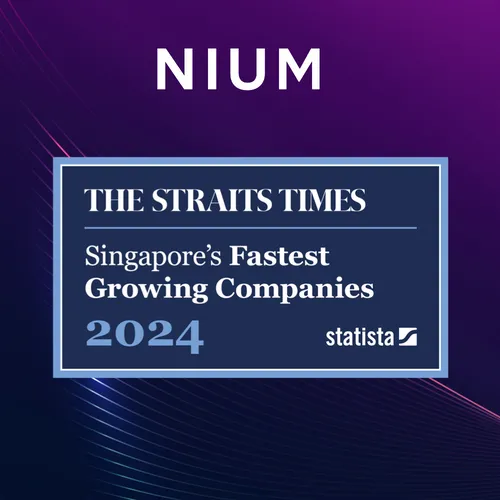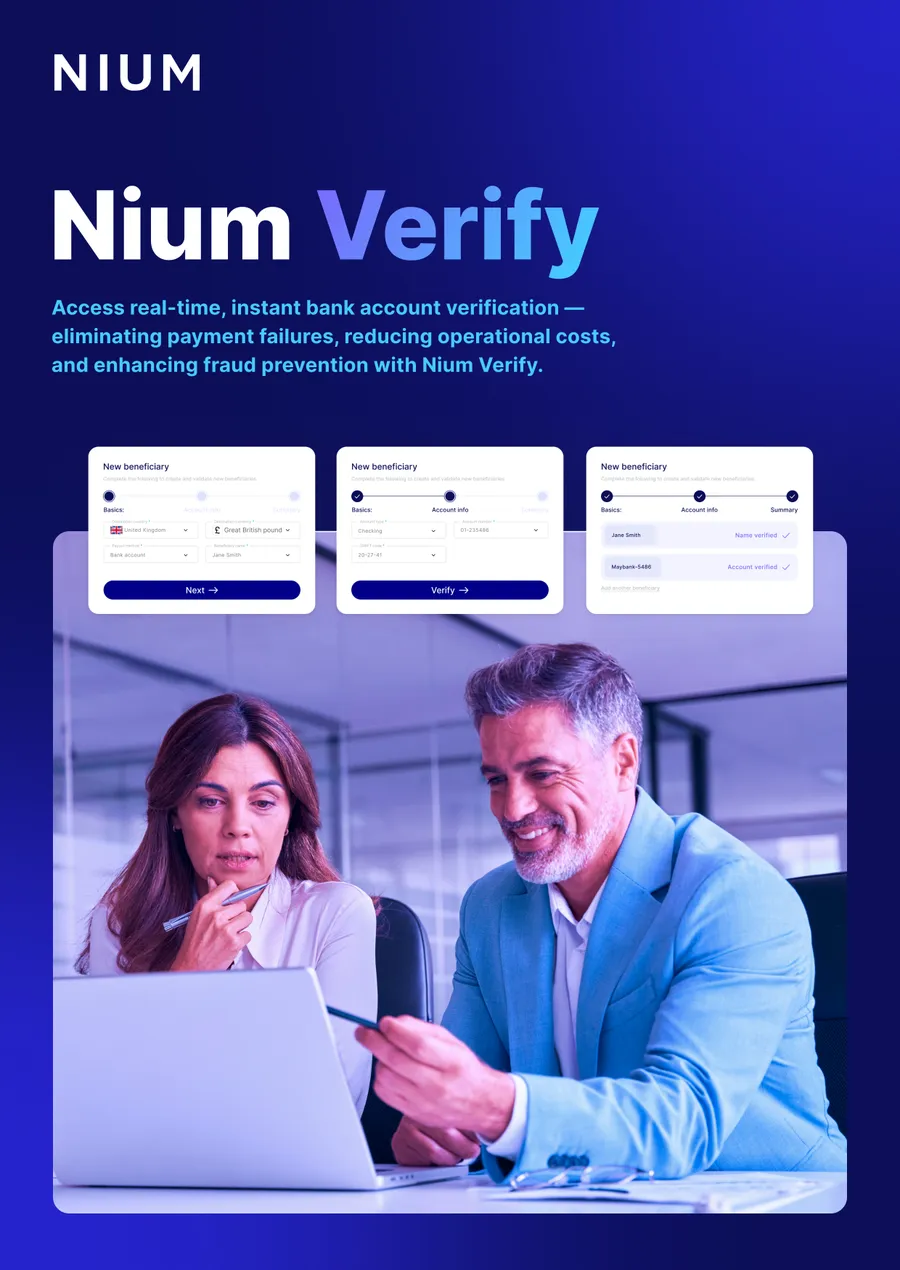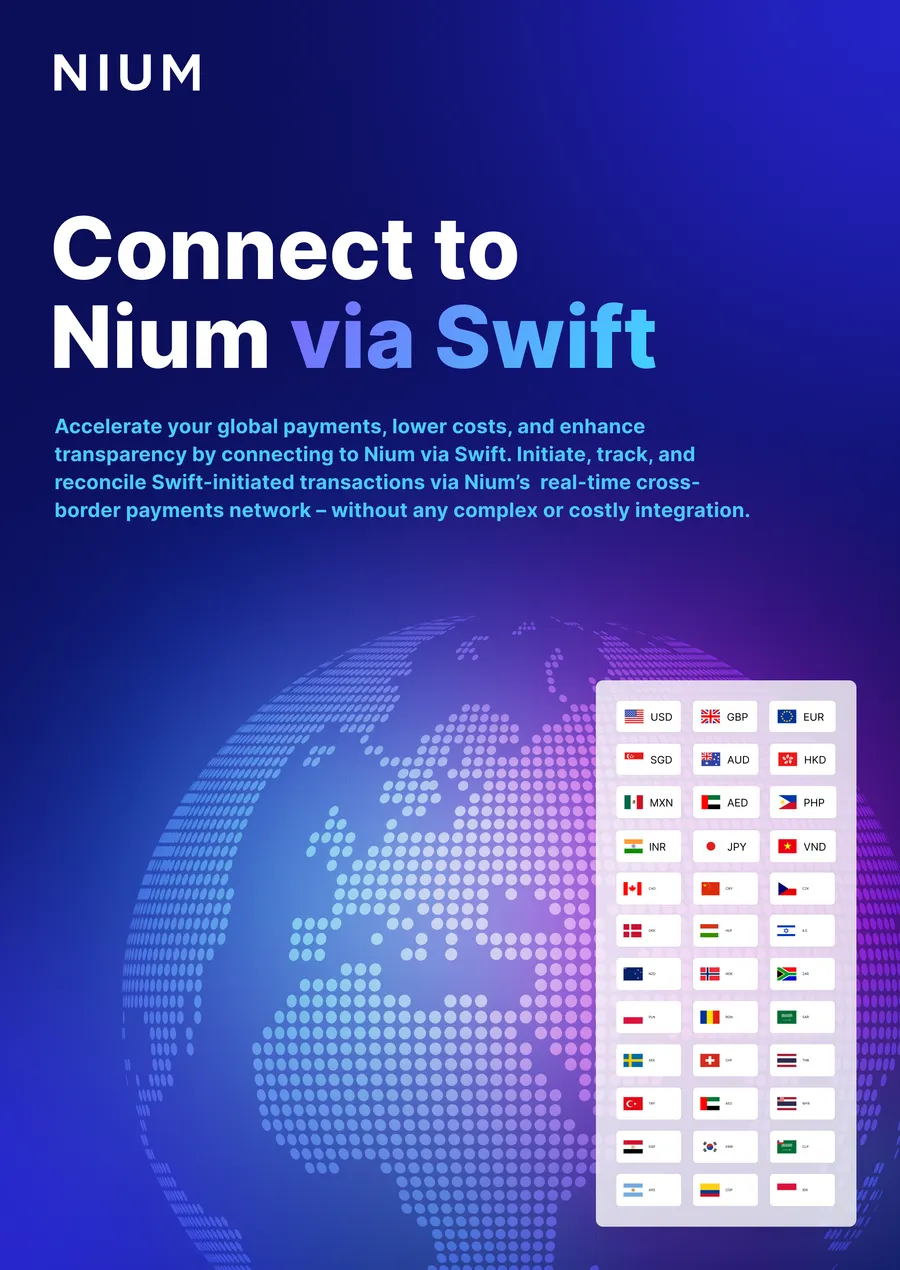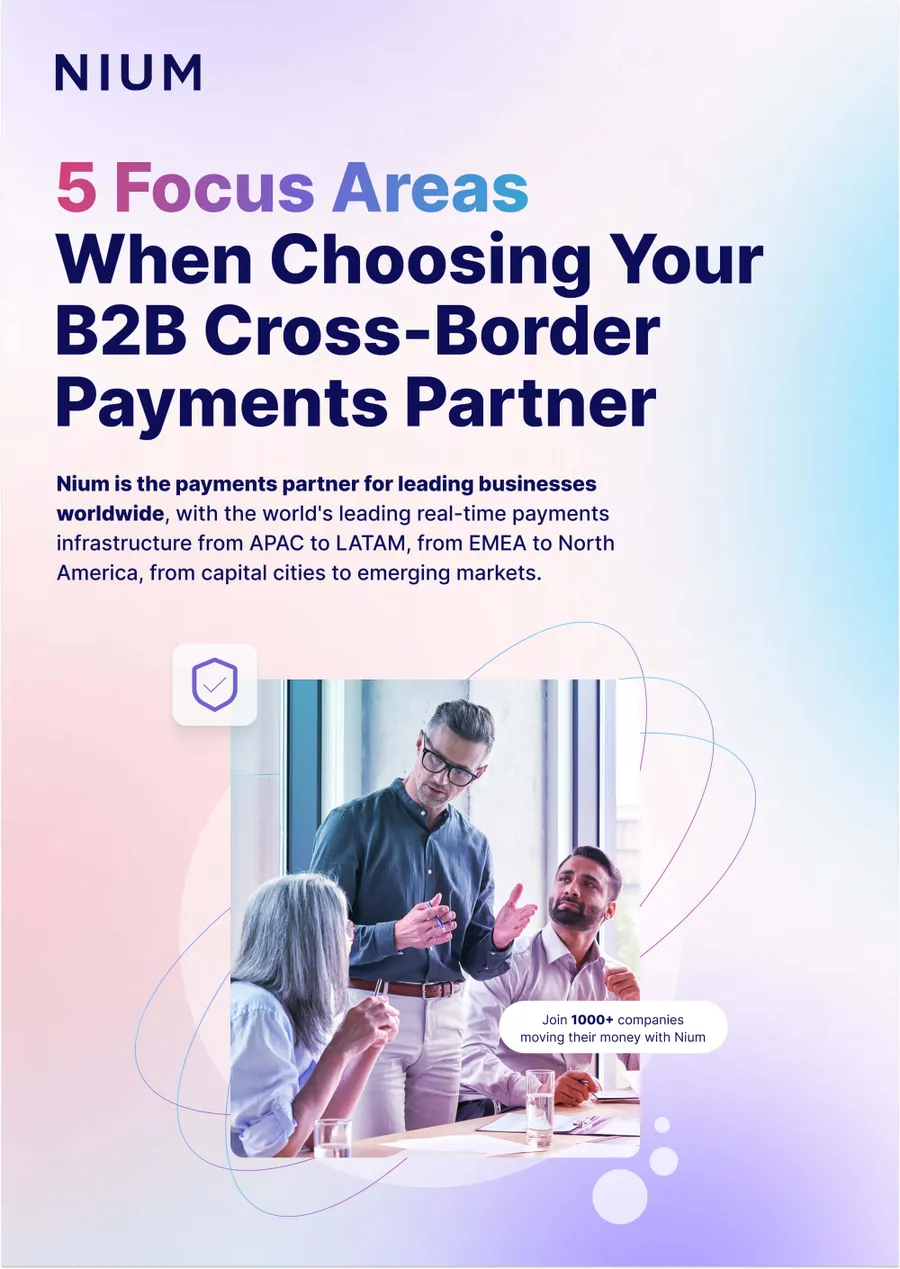In 2017, the oldest bank in the UAE launched the newest. Mashreq Bank created Mashreq Neo – a digital-only bank for retail customers. In a clear sign that the digital commitment was paying off, Mashreq extended its digital offering to small businesses in 2019. In this episode, Rohit Garg, head of digital business banking at Mashreq, sits down with host Taneia Bhardwaj to talk about the learnings along the way and how the bank is getting future-ready to compete with nimbler entrants.
You can also listen on:
Spotify
Breaker
Pocket Casts
Send us your feedback to: [email protected]
Taneia Bhardwaj: The global banking industry is undergoing what you could call a digital renaissance. What were the drivers that led Mashreq down the path of digital transformation?
Rohit Garg: Hi, Taneia, it’s a pleasure to be here. Mashreq is one of the oldest banks in the UAE. It’s the largest private bank in the UAE and has been around for 52 years. It’s also a bank which is very well known for its innovation DNA. Mashreq introduced credit cards, debit cards to the region and also introduced ATMs in the UAE. Adoption of digital technology and digital per se have been one of the key pillars of Mashreq’s strategy and it has inspired us to transform into a digital first bank. This is driven not just for the sake of innovation, but there are some real key drivers in the UAE and a need in the region, which has led us to go down the path. For one, the UAE government is one of the most progressive governments and has adopted digital far ahead of many of its peers. If you look at smartphone and internet penetration, you’d to be surprised to know that UAE has one of the highest penetrations of smart phones and broadband in the world. If you look at consumers, it’s got a microcosm of more than 400 nationalities, so the best practice of each and every country is right here. If you put all of this together, it’s a consumer diaspora, a business diaspora which is absolutely ripe for adopting digital and leading the transformation in the region.
TB: World over incumbent banks are actively investing in FinTech companies as a means future proof themselves. If you were looking to build a neobank today, there’s literally an API for everything. Given this environment, what has been the bank’s innovation strategy?
RG: We started off on the innovation and digital agenda a few years ago. The start point for us was customer centricity and customer experience. There is no doubt that traditional experience for the customer is a lot better in most repeatable transactions than physical interactions. So, the customer convenience is immense and tremendous. Now, how do you go about integrating all the technological innovation, which is happening across the board? While adopting all the technologies like, you know, creation of API gateways open banking, et cetera, we were also very keen to work with partners which has been our mantra for quite some time. For a bank of our size and scale it’s absolutely imperative that we partner and we’ve been more than open to partnerships. I can give you an example in the individual remittance space, we’ve got a product and service now, which is absolutely the best in class and that’s happened because were able to scale up quickly, both in terms of technology, connectivity and reduction of cost. So tying up with partners rather than trying to do everything ourselves. So if I put it in a nutshell, our innovation philosophy is around customer centricity. So how do you acquire customers? How do you engage with customers and how they transact with us? So that’s the customer centricity pillar. And then how do we go about putting it into action is of course, whatever we can rebuild and then partnerships is the way to go for us.
TB: You talked about remittances and how that’s sort of been a successful outcome for you. What are some of the other learnings or insights from this entire digitization process that you could maybe share with us. Three years on, how would you assess the neobank’s performance?
RG: About three years ago, we launched our individual digital bank, which is Neo. It was launched again on the back of some of the stuff that I mentioned earlier, which is, you know, the market readiness, smartphone and internet penetration, which was highest, and that’s been there for the past three years, it’s not a new phenomenon. A population which is comprising of more than 85% expatriates and remittance was a key product or a need for them. And this service lends itself to being digital. A government, which is very supportive in terms of building infrastructure. When we launched Neo, these were the reasons we started. Three years down the line more than 75% of all our retail bank acquisition for individual customers is coming through Neo. It’s been far, far ahead of every parameter that we set for it and it’s 100% digital acquire, transact, and engage.
And you know, it’s not just customer acquisition. Customers are engaging with us digitally in a manner which is best of class on every parameter. So, I think that the customer adoption of digital is far far ahead of what we think it is going to be. I think customers are agnostic to whether it’s digital or analog or it’s physical. I think what they’re looking for is convenience – convenience in terms of experience, time, reduced costs and digital is a fantastic tool to deliver all of this. As a means to an end, which is customer experience, digital has really prompted us from a neobank perspective for individuals.
TB: What are the goals for digital transformation that the bank has sort of set out to achieve?
RG: I think goal for digital transformation are multiple. And it’s a subject in itself from a bank perspective. But if I put it at a high level, I think the goal is customer experience, the goal is reduction of cost for the customer. And the goal is delivering convenience at the time and place of customer choosing. I think customer behaviour is changing in a major way. So, one of the goals which is internal to the bank is to be future ready.
TB: How has the pandemic changed this outlook or spurred Mashreq to adopt at a faster pace? How do you assess the impact of the pandemic, clubbed with the crash in oil prices for the GCC region? Many say it is likely to suffer its worst recession ever in 2020.
RG: So, there are two parts to your question. Let’s address the first part, which is how has the pandemic affected consumers in general or small business in general. I think data has now started coming in that the pandemic has pushed digital adoption by almost 10 years. I was looking at some data just yesterday on adoption of online shopping and the data shows that the penetration of online shopping, the way it was for the first 10 years in the last 90 days has doubled itself. So, I think digital adoption and penetration has gone up by almost 10 years in these last 90 days. Obviously e-commerce is a sector which is far more affected, but I think it’s not just that, almost everyone’s adopting contactless, digital in a major way.
The way we shop, the way we play, the way we do lesiure, the way we watch television, everything is changing. I think there’s a dramatic change happening around the world and GCC is no exception. From a Mashreq standpoint we were lucky that we had a pretty good technology backbone of work from home. In the very first week when the pandemic gained severity in the UAE, we were able to get 95% plus work from home for all the staff, including our colleagues in the back office in India. This is no mean achievement. As that happened, several new vistas opened up, the technology became more stable and the adoption of digital tools, the ease that they bring, has brought about a new thinking in how we want to adopt this in 2020. Obviously, it’s not an end point as of now, but the technology availability, the technology adoption and the technology usage has opened up several new ideas in terms of how do we go forward. So, from that perspective, I think the pandemic is going to change consumer behavior, not to the extent that it is happening today, because you know, human interaction will never go away, but I think some residue of the change in behaviour will remain forever. For the first month or two there were doubts over whether this will persist but we are very clear that the change in human behaviour is not going away completely. I think there is no country in the world which is not impacted by the pandemic. But the UAE and Dubai are also one of those places which has managed the pandemic extremely well. The curve was flattened quite some time ago. I think as several other countries are grappling with this issue, by the grace of God and the efforts of the UAE government, the situation is largely under control. As we speak, flights are opening up, tourism is opening up again, most of the offices are back to 100% work from office. Of course, as all of this is happening, we need to be careful about masks, social distancing, etc. But slowly but surely life is moving along and adopting to the new ways. I think the economic impact is also exacerbated by oil prices, but oil prices have also bounced from where they were a few months ago. All I can say is that the adaption to change in the region has been far ahead of other places. I think the region has a surprising ability to change and adapt to every crisis and having lived here long enough, I think I’m very confident that the pandemic and its aftermath will be managed. There will be impact for sure, but it’s not about the crisis, it’s about how you react and manage the crisis.
TB: The pandemic apart, you also talked about the region adopting digital at a faster clip. Challenger banks are using that to change the way that traditional banking is done, not just in the Gulf region, but around the world. And while you have had sort of first mover advantage, how are you gearing up for fierce competition?
RG: If you look at how digital-only neobanks have performed across the globe, you will see that 2% of total banking revenue is catered to by them as of now. You’ve been talking to global leaders, so you would have seen that while neobanks are being adopted, people are not moving away from traditional banks. So, they still want to eat at a diner but also snack at the new place in town. By launching a neobank three years ago for individuals and almost a year ago for small business, I think we’ve got a huge amount of learning that we are now ploughing back into our offerings.
Traditionally, you know, all customers belonged to or were banking with the banks, which have been around for years. Why are they moving to neobanks? It’s because of the superior experience that was offered. As an institution, we can offer the same experience and perhaps better because we also have the legacy of relationships, we understand the consumers who have been with us for many, many years. We’ve got the experience of running these neobanks both for individual, as well as for business banking with us. We are innovating every day, changing to adapt and adopt technology, change in consumer behaviour, and tailor our offering to this change. So, we welcome competition as it’s coming. I think we are confident that we’ve catered to the customers for a long time and changed our offering to suit their requirements. Take remittances for example. The UAE now has all the FinTech players which have changed the landscape globally. So, it is as competitive as it can be. Obviously, it’s a very attractive market because it is the second biggest remittance out market in the world.
Am I worried about, how competition going to be? I would say I’m cautiously optimistic. And the reason for that is that, you know, I think the customer experience the convenience and the cost that Mashreq offers is at par with any other player in the market. We also have the benefit of having the customer relationship with us, and I see no reason why we will not be able to compete and compete well in this space. This is one example, but I can take the same example on the neobanks. So today with Neo Biz, which is a our neobank for business customers, it’s the only offering in the market one year after the launch that is going strong. At the time we launched, some player announced their plans but unfortunately were unable to go ahead because it is a complex market and we were willing to manage this because we did have the benefit of having these relationships with us for a long time. We have the benefit of learnings from launching a individual neobank and we put all of these into play. Are we 100% there? No, because it’s a journey not a destination. But in the last 11 months, we’ve got invaluable learnings and insights into how customers behave. All of these are being put back into our journeys to make it far more intuitive, convenient and customer centric. So, I think the fact that we’ve been early adopters is going to help us compete well. Consumer behaviour is changing every day. You know, it’s like once you go to an ATM and withdraw money, you never want to go back to a teller if you can help it.
So yes, it’s a tough journey because once the customer moves to convenience, he wants that delivered absolutely immediately. Another thing is that digital experience customers tend to compare across industries. So they will not look at how a bank is doing. They will compare any other experience that they have with yours – like making travel bookings or e-commerce. So, they look at the experience across industries and that’s why this insight is something that you look upon based on experience. With the experience that we have garnered over the last two years, I think we should be able to compete well.
TB: If you were to do some crystal-ball gazing, what do you think is going to be the future of a bank? Will branch banking even exist? Or will the phygital model always stay?
RG: Great question. So, I’d like to share a small anecdote with you. 10 or so years ago, I was shown a crystal-ball type of presentation. It talked about the fact that banks will disappear in five years. Social media players will become banks as well, you will be able to do a cross border remittance by sending an SMS, you will be able to flash photos of your friends and families and transfer money. I’m not a firm believer in trying to predict the future so I wouldn’t be able to say what it will look like but I think there is no two ways that digital is changing the way we live, the way we work. Do I think there will be no human interaction left? I personally don’t think so. I think customer experience is going to become far more superior. I think there will be lots of technologies, lots of industries, which should become interconnected. So,I think ecosystems will come into play. If you look at markets in Asia like Singapore, China, and Hong Kong the fact that ecosystems are coming in and with one app, you can do multiple things. You can hail a taxi ride, you can get a movie ticket, you can do banking, you can book a restaurant, you can book airline tickets, et cetera.
So, all this convergence is happening. I think how this will play out is difficult to say, because 10 years is a very long time, but no matter what, I think human interaction will remain in what form and shape in what frequency remains to be seen. I think that fully human experiences and interactions may become less and less. So, let me just elaborate what I see. So, you go to take out money and if you have to go stand in a queue and wait for 15-20 minutes to take out $200 of your own money, I think that’s a painful experience. I don’t think these experiences will remain in 10 years from now. But I feel that if you want to go and get some advice about how your investments are doing, or, you know, what the market is looking like, and you want to do it across the table with a cup of coffee, with somebody pleasant, I think that’s, that’s not a painful experience, I would say that’s a pleasant experience. I think these types of interactions will remain. I mean, human beings are not made to work in isolation or live in isolation. So, I think that’s, as far as I would hazard a guess in terms of what’s coming.
Thanks for listening.



.png@webp)
.png@webp)
.png@webp)
.png@webp)





